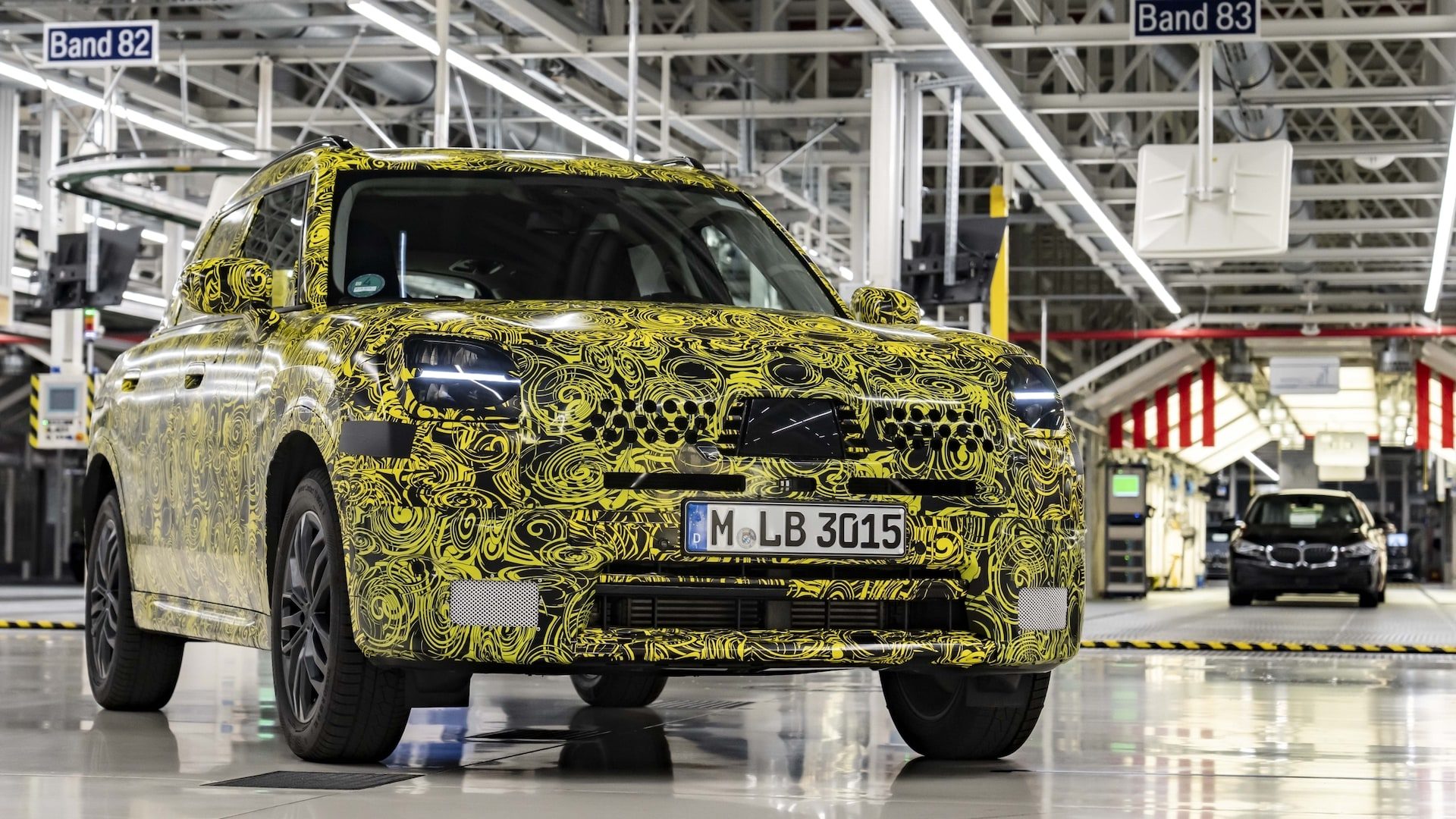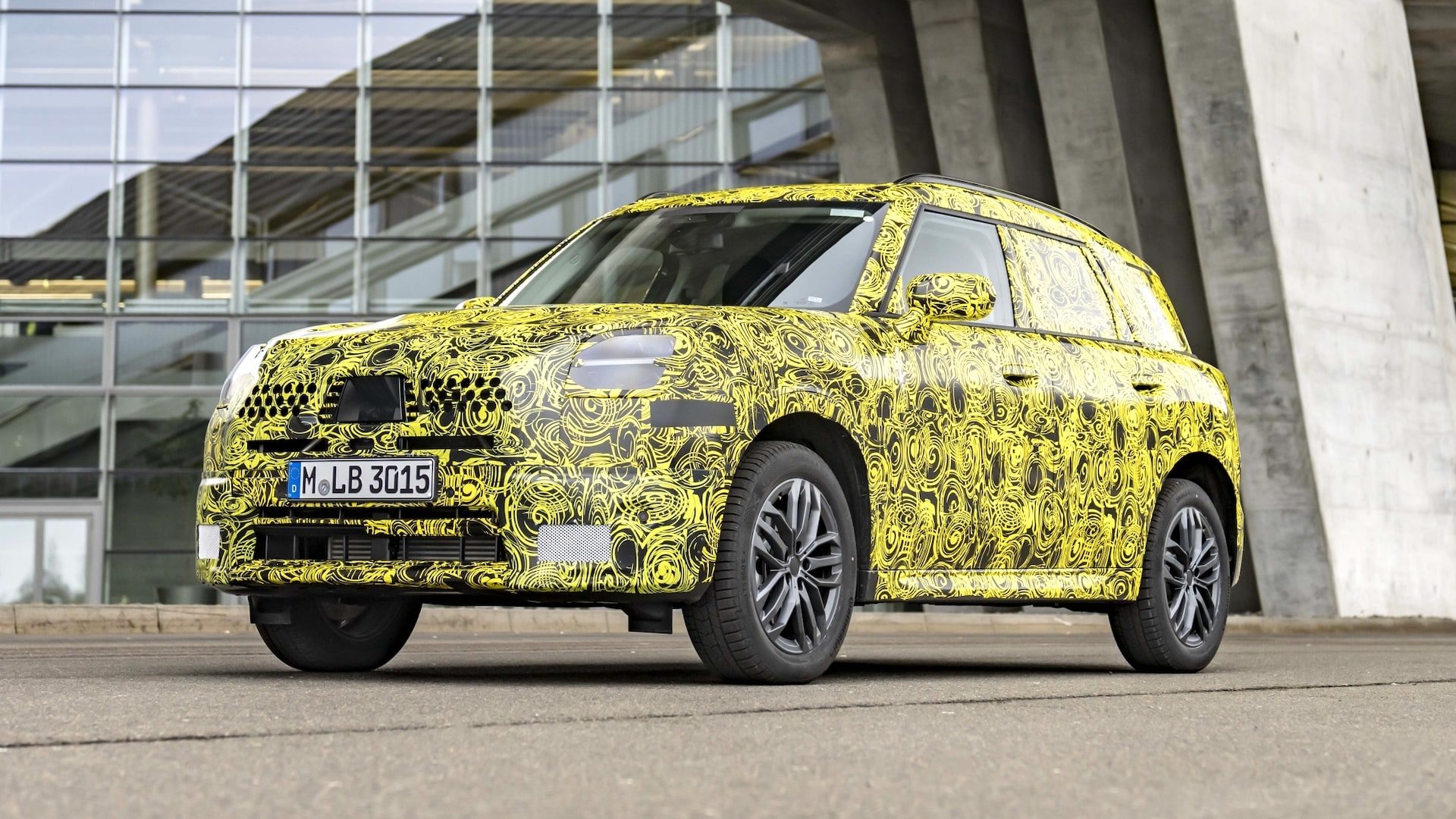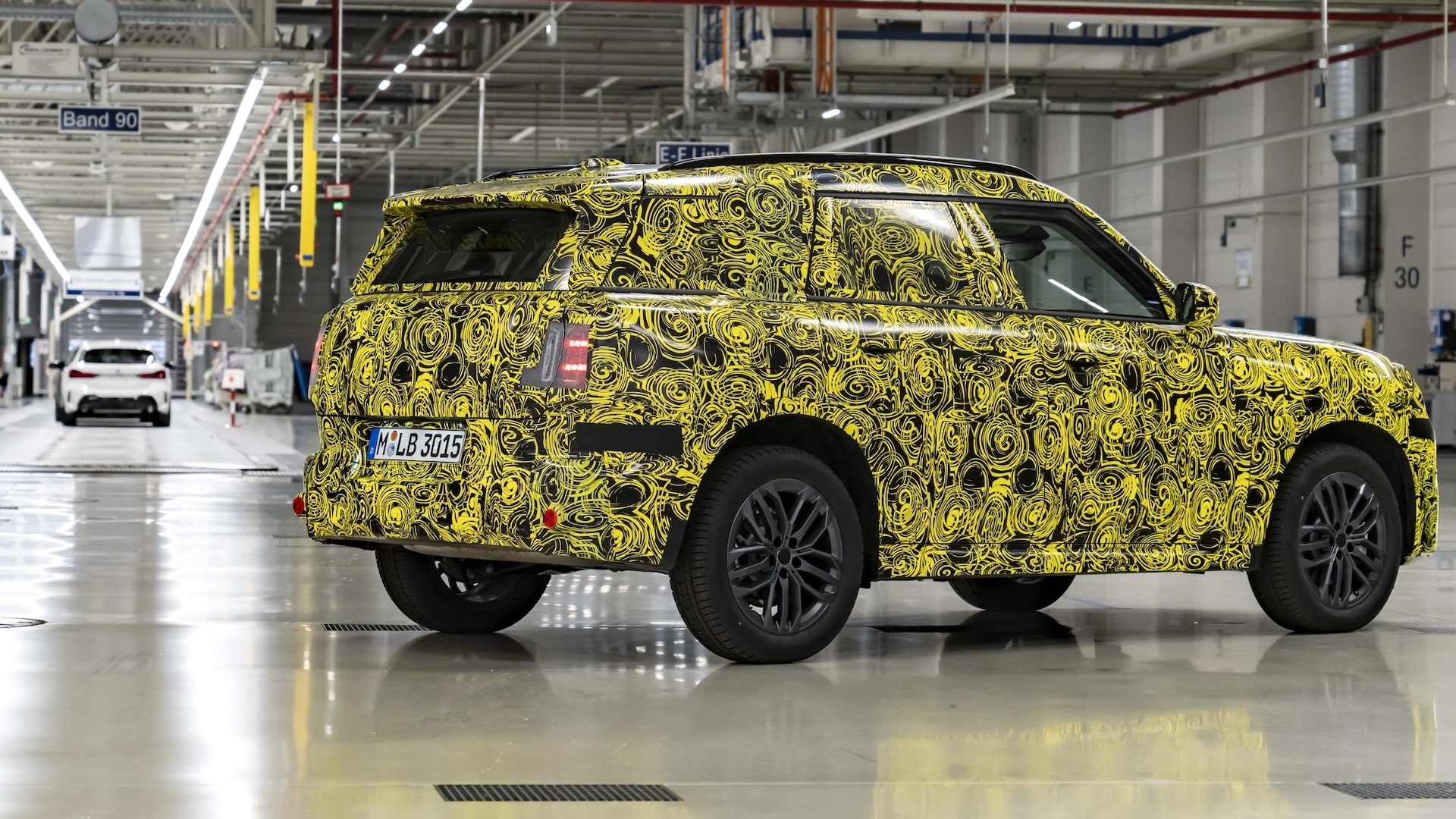
Mini has revealed camouflaged images of its new Countryman crossover SUV, ahead of production starting later this year.
The third-generation Countryman will be offered with a choice of petrol engines alongside fully electric battery power.
Significantly, the 2023 Countryman also becomes the very first Mini to be made in Germany.
From Leipzig with love

Previous versions of the Mini Countryman were built around the world, including at factories in Austria, India and the Netherlands. However, no Mini so far has been built in Germany.
BMW has picked its Leipzig facility in Saxony to produce the next Countryman, which the company hails as one of its most environmentally sustainable plants.
The Countryman will be manufactured alongside the BMW 1 Series hatchback, 2 Series Gran Coupe and 2 Series Active Tourer. As such, this also marks the first time Mini and BMW models have been made side-by-side.
Electric versions of the Countryman will use batteries manufactured at the Leipzig site. BMW has invested more than €800 million (£709 million) in the factory’s ability to make EV components, and will employ 1,000 extra staff by 2024.
At present, Leipzig employs 5,600 workers and manufactures up to 1,000 cars every day.
Plant powered by i3 batteries

Electric power is also at the core of the Leipzig’s daily operations, thanks to four 190-metre-tall wind turbines. Combined, they generated almost 22GWh of power in 2021: equivalent to the energy consumption of 5,000 three-person households.
This energy is captured in a storage farm of 700 high-voltage batteries, which are the same as found in the BMW i3 electric car.
Plant director Petra Peterhaensel says the Leipzig site is “the first automotive plant in the world to use a newly developed burner technology in our paint shop that can use green hydrogen instead of natural gas”.
“Hydrogen has already been used in plant logistics since 2013. Today, five hydrogen filling stations provide energy for over 130 fuel cell-powered industrial trucks, the largest fleet in Germany.”
ALSO READ:
New ‘Sleep Pack’ transforms your Dacia Jogger into a bedroom
EV drivers want better coffee when using public chargers
Ski-special Land Rover is first project from Aubrey Automobiles